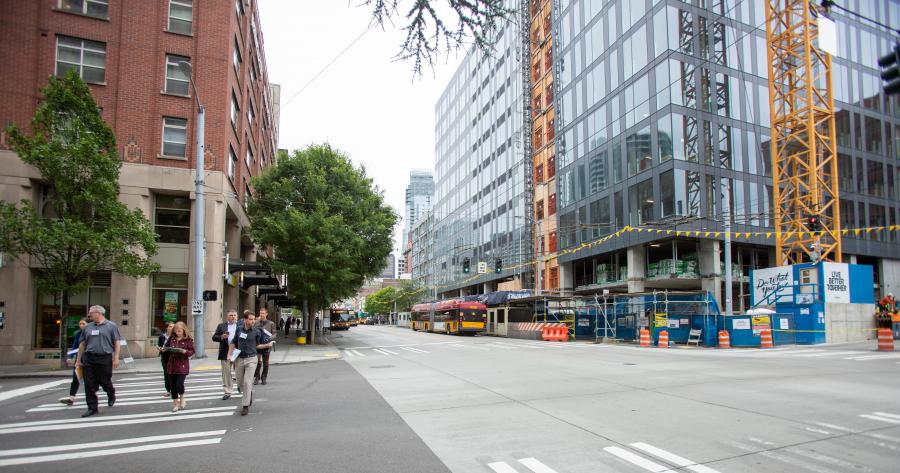
February 22, 2021 — To assist in the strengthening of urban freight practices, the Urban Freight Lab (UFL) is launching a six-month Technical Assistance Program for cities, government agencies and nonprofits from outside of the Puget Sound region. We are inviting agencies and organizations who share the same passion and vision for solving urban freight challenges with UFL, to apply for the program.
Applications may request any type of assistance in the broad field of Urban Freight and Logistics that the agency/organization is interested in and deem useful for pursuing with UFL. The Urban Freight Lab is particularly interested in supporting cities in:
- developing collaborative relationships with private sector freight companies
- building more data-driven urban freight programs to accurately understand commercial activities
- developing robust data collection plans
- reviewing and critiquing municipal urban freight practices
- charting a pathway to zero-emission urban freight
UFL will contribute to the effort by providing 1:1 match funds in terms of staff and/or research assistants time to complete their tasks in support of the project. Applications are due Thursday, April 15, 2021, at 5 pm Pacific time, and more information about application content and structure can be found here.
Update: Technical assistance was awarded to the New York City Department of Transportation and the Frontier Metropolitan Planning Organization (FMPO) in Fort Smith, West Arkansas.
Read more:
About the Urban Freight Lab (UFL): An innovative public-private partnership housed at the Supply Chain Transportation & Logistics Center at the University of Washington, the Urban Freight Lab is a structured workgroup that brings together private industry with City transportation officials to design and test solutions around urban freight management. Since launching in December 2016, the UFL has completed an innovative suite of research projects on the Final 50 Feet of delivery, providing foundational data and proven strategies to help cities reduce truck dwell times in load/unload spaces, and failed first delivery attempts by carriers, which lowers congestion, emissions, and costs.